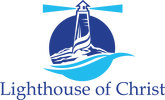Teachability is not so much about competence and mental capacity as it is about attitude. It is the desire to listen, learn, and apply. It is the hunger to discover and grow. It is the willingness to learn, unlearn, and relearn. I love the way legendary basketball coach John Wooden states it: “It’s what you learn after you know it all that counts.”
When I teach and mentor leaders, I remind them that if they stop learning, they stop leading. But if they remain teachable and keep learning, they will be able to keep making an impact as leaders. Whatever your talent happens to be – whether it’s leadership, craftsmanship, entrepreneurship, or something else – you will expand it if you keep expecting and striving to learn.
Futurist and author John Naisbitt believes that “the most important skill to acquire is learning how to learn.” Here is what I suggest as you pursue teachability:
When I teach and mentor leaders, I remind them that if they stop learning, they stop leading. But if they remain teachable and keep learning, they will be able to keep making an impact as leaders. Whatever your talent happens to be – whether it’s leadership, craftsmanship, entrepreneurship, or something else – you will expand it if you keep expecting and striving to learn.
Futurist and author John Naisbitt believes that “the most important skill to acquire is learning how to learn.” Here is what I suggest as you pursue teachability:
1. Learn to listen.
American writer and philosopher Henry David Thoreau wrote, “It takes two to speak the truth – one to speak and one to hear.” Being a good listener helps us to know people better, to learn what they have learned, and to show them that we value them as individuals.
As you go through each day, remember that you can’t learn if you’re always talking. As the old saying goes, “There’s a reason you have one mouth and two ears.” Listen to others and remain humble, and you will learn things that can help you expand your talent.
2. Understand the learning process.
Here’s how learning typically works:
Remember, the greatest enemy of learning is knowing. And the goal of all learning is action, not knowledge. If what you are doing does not in some way contribute to what you or others are learning in life, then question its value and be prepared to make changes.
3. Look for and plan teachable moments.
If you look for opportunities to learn in every situation, you will expand your talent to its potential. But you can also take another step beyond this and actively seek out and plan teachable moments. You do that by reading books, visiting places that inspire you, attending events that prompt you to pursue change, and spending time with people who stretch you and expose you to new experiences.
4. Make your teachable moments count.
Even people who are strategic about seeking teachable moments can miss the whole point of the experience. I say this because for many years I’ve been a speaker at conferences and workshops – events that are designed to help people learn. But I’ve found that many people walk away from an event and do very little with what they heard.
We tend to focus on learning events instead of the learning process. Because of this, I try to help people take action steps that will help them implement what they learn. I suggest that in their notes, they pay special attention to
Then after the conference, I recommend that they create to-do lists based on what they took note of, then schedule time to follow through.
5. Ask yourself, “Am I really teachable?”
I’ve said it before, but it bears repeating: all the good advice in the world won’t help if you don’t have a teachable spirit. To know whether you are really open to new ideas and new ways of doing things, ask yourself the following questions:
If you answered no to one or more of these questions, then you have room to grow in the area of teachability. You need to soften your attitude, learn humility, and remember the words of John Wooden: “Everything we know we learned from someone else!”
Adapted from Self-Improvement 101
American writer and philosopher Henry David Thoreau wrote, “It takes two to speak the truth – one to speak and one to hear.” Being a good listener helps us to know people better, to learn what they have learned, and to show them that we value them as individuals.
As you go through each day, remember that you can’t learn if you’re always talking. As the old saying goes, “There’s a reason you have one mouth and two ears.” Listen to others and remain humble, and you will learn things that can help you expand your talent.
2. Understand the learning process.
Here’s how learning typically works:
- STEP 1: Act.
- STEP 2: Look for your mistakes and evaluate.
- STEP 3: Search for a way to do it better.
- STEP 4: Go back to Step 1.
Remember, the greatest enemy of learning is knowing. And the goal of all learning is action, not knowledge. If what you are doing does not in some way contribute to what you or others are learning in life, then question its value and be prepared to make changes.
3. Look for and plan teachable moments.
If you look for opportunities to learn in every situation, you will expand your talent to its potential. But you can also take another step beyond this and actively seek out and plan teachable moments. You do that by reading books, visiting places that inspire you, attending events that prompt you to pursue change, and spending time with people who stretch you and expose you to new experiences.
4. Make your teachable moments count.
Even people who are strategic about seeking teachable moments can miss the whole point of the experience. I say this because for many years I’ve been a speaker at conferences and workshops – events that are designed to help people learn. But I’ve found that many people walk away from an event and do very little with what they heard.
We tend to focus on learning events instead of the learning process. Because of this, I try to help people take action steps that will help them implement what they learn. I suggest that in their notes, they pay special attention to
- Points they need to think about
- Changes they need to make
- Lessons they need to apply
- Information that they need to share
Then after the conference, I recommend that they create to-do lists based on what they took note of, then schedule time to follow through.
5. Ask yourself, “Am I really teachable?”
I’ve said it before, but it bears repeating: all the good advice in the world won’t help if you don’t have a teachable spirit. To know whether you are really open to new ideas and new ways of doing things, ask yourself the following questions:
- Am I open to other people’s ideas?
- Do I listen more than I talk?
- Am I open to changing my opinion based on new information?
- Do I readily admit when I am wrong?
- Do I observe before acting on a situation?
- Do I ask questions?
- Am I willing to ask a question that will expose my ignorance?
- Am I open to doing things in a way I haven’t done before?
- Am I willing to ask for directions?
- Do I act defensive when criticized, or do I listen openly for truth?
If you answered no to one or more of these questions, then you have room to grow in the area of teachability. You need to soften your attitude, learn humility, and remember the words of John Wooden: “Everything we know we learned from someone else!”
Adapted from Self-Improvement 101


 RSS Feed
RSS Feed